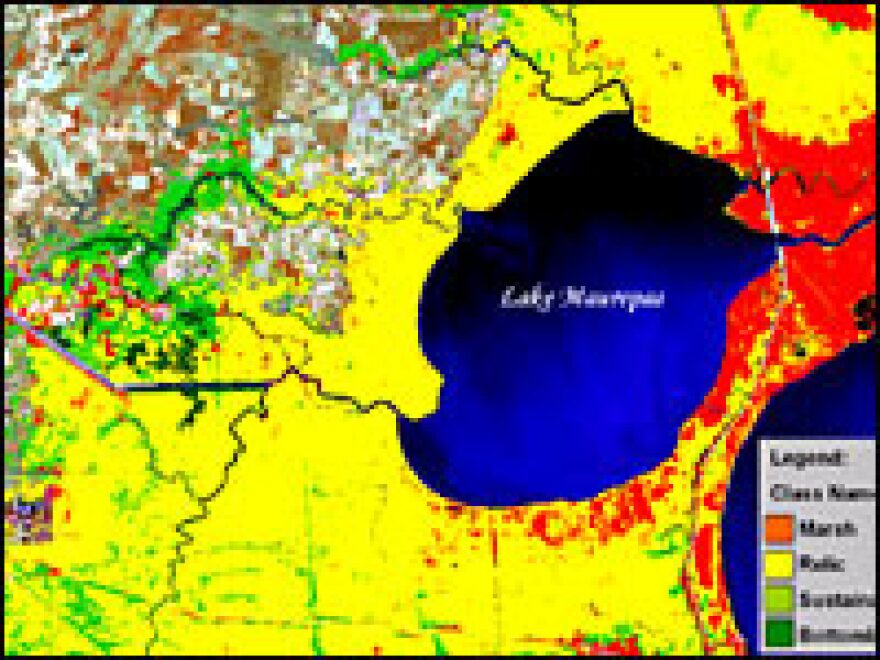

Once a century, the cypress trees of Louisiana's swamps become large enough to harvest. Now is the time. Loggers, landowners and mill operators are itching to get the trees to market.
Wood from cypress, which full-grown rise 75-100 feet into the sky, is valued for its beauty and its resistance to rot and insects, and there is a market hungry for everything from cypress shingles and lawn furniture, to cabinets and mulch.
But some scientists worry that harvesting the majestic trees could destroy a fragile ecosystem. Ecology professor Gary Shaffer says cypress play a crucial role in the swamp forests that cover hundreds of thousands of acres of coastal Louisiana. These swamps prevent floods by collecting storm waters and clean water by filtering out pollution. They also provide habitat for a wide variety of animals, such as migratory songbirds (the ivory-billed woodpecker, until recently believed extinct, once thrived in the swamps).
Shaffer says the loss of cypress trees upsets the whole ecosystem, turning swamps into inhospitable marshes. He and other local scientists closely studied sections of swamp and extrapolated their findings to the entire area. A preliminary estimate suggests that 80 percent of coastal Louisiana's cypress forests would not grow back if cut down.
It's a difficult case to make to the people clamoring for the timber. After all, this same forest of towering trees was cut down, completely about 100 years ago and has grown back. But Shaffer argues that the system has changed so dramatically over the last 100 years that it's not the same system any more -- and is unlikely to recover in the same way.
State forester Paul Frey agrees that some areas wouldn't regenerate if cut. But he argues those fragile areas won't be logged because it's too expensive to get equipment into them.
Shaffer would like to see a moratorium on logging, but for now, the only thing keeping the loggers from the cypress is a power struggle between the Army Corps of Engineers and a Louisiana senator.
Copyright 2022 NPR. To see more, visit https://www.npr.org.









